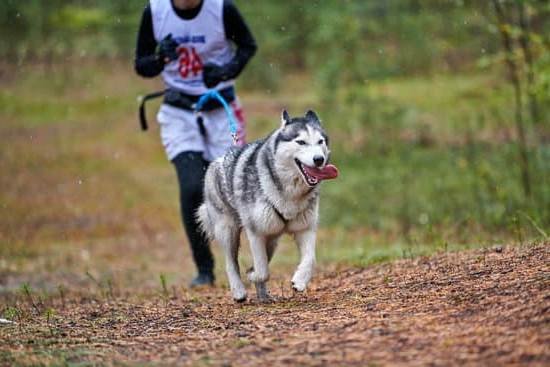Barking Dog Training
Dogs bark for a variety of reasons, including excitement, boredom, and fear. Barking may also be a way for a dog to communicate with people or other animals. Dogs that bark excessively can be a nuisance to their owners and their neighbors.
There are many ways to address excessive barking, including positive reinforcement training, behavior modification, and training collars. Some of these methods may be more effective than others, and it is important to consult with a veterinarian or professional dog trainer to determine the best approach for your dog.
Positive reinforcement training is a type of training that uses rewards, such as treats or praise, to reinforce good behavior. This type of training can be effective for dogs that bark out of excitement or boredom. The goal is to train the dog to associate good things with quiet behavior, and over time the dog will learn to stop barking in order to receive the rewards.
Behavior modification is a type of training that aims to change the dog’s behavior by modifying the way it is rewarded or punished. This type of training can be effective for dogs that bark out of fear or aggression. The goal is to help the dog associate good behaviors with positive outcomes, and to punish bad behaviors with negative outcomes.
Training collars can be a helpful tool for addressing excessive barking. There are a variety of training collars available, including choke chains, prong collars, and electronic collars. The type of collar that is best for your dog will depend on the individual dog’s temperament and behavior. It is important to consult with a veterinarian or professional dog trainer to determine the best type of collar for your dog.
If you are experiencing problems with your dog’s excessive barking, it is important to consult with a veterinarian or professional dog trainer to determine the best approach for your dog. There are a variety of methods available, and the most effective approach will vary from dog to dog.
How To Train A Dog Not To Bark At Strangers
One of the most common reasons people give up on dogs is because of their incessant barking at strangers. Dogs bark for a variety of reasons, but often barking at strangers is simply out of excitement or fear. There are a few ways to train your dog not to bark at strangers, and it will take some patience and consistency on your part.
The first step is to determine why your dog is barking at strangers. Once you know the root of the problem, you can start to address it. If your dog is barking out of excitement, you will need to start by teaching them to sit and stay. Once they are calm, you can then begin to work on having them greet strangers. If your dog is barking out of fear, you will need to start by teaching them to come when called and to stay in a down position. Once they are obeying your commands, you can then begin to have strangers come up to them and give them treats.
It is important to be consistent with your training, and to never reward your dog for barking at strangers. This will only reinforce the behavior. Instead, only give them treats and praise when they are calm and quiet around strangers. It may take some time, but with patience and consistency, you can train your dog not to bark at strangers.
How To Train Your Dog Not To Bark At Everything
Dogs bark for a variety of reasons, many of which are related to fear or excitement. If your dog is barking at everything, it can be frustrating and annoying. Here are a few tips on how to train your dog not to bark at everything.
The first step is to determine why your dog is barking. Once you know the reason, you can start working on a solution.
If your dog is barking out of fear, you need to work on building up their confidence. Start by introducing them to new people and animals in a positive way. Reward them for good behavior and ignore them when they bark. Over time, they will learn that they don’t need to bark in order to get attention.
If your dog is barking out of excitement, you need to teach them to “speak” or “quiet” on cue. Start by getting their attention and telling them to “speak.” Once they start barking, say “quiet” and give them a treat. Do this until they start responding consistently, and then gradually increase the difficulty of the exercises.
It will take time and patience, but eventually you will be able to train your dog not to bark at everything. Just be consistent and keep rewarding them for good behavior.
How To Train A Dog To Stop Excessive Barking
There are a few different things you can do to train your dog to stop excessive barking. The first step is to determine why your dog is barking. Is he barking for attention? Is he barking because he’s excited or scared? Once you know why your dog is barking, you can start to work on correcting the behavior.
If your dog is barking for attention, you’ll need to ignore him when he starts barking and only give him attention when he’s quiet. If your dog is barking because he’s excited or scared, you’ll need to try to calm him down. You can do this by talking to him in a soothing voice, petting him, or giving him a treat.
It may take some time for your dog to stop barking, but with patience and persistence, you can train him to stop.
Training A Dog Not To Bark On Walks
One of the main reasons people give up on dog ownership is because of the incessant barking. Barking is a natural behavior for dogs, but it can be extremely frustrating for owners when it happens constantly, especially when the dog is outside.
There are a few things you can do to help your dog learn not to bark on walks. The first is to make sure you are providing enough exercise. A tired dog is less likely to bark. Secondly, you need to start training your dog when he is still a puppy. If you wait until he is an adult, it will be much more difficult to train him.
The best way to train a dog not to bark is by using positive reinforcement. Whenever your dog doesn’t bark, reward him with a treat or a pat on the head. This will help him associate not barking with something positive. If your dog does start to bark, don’t punish him. Simply stop walking and ignore him until he stops barking. Once he has stopped barking, resume walking and continue rewarding him for not barking.
It will take some time and patience, but with a little work, you can train your dog not to bark on walks.

Welcome to the blog! I am a professional dog trainer and have been working with dogs for many years. In this blog, I will be discussing various topics related to dog training, including tips, tricks, and advice. I hope you find this information helpful and informative. Thanks for reading!





